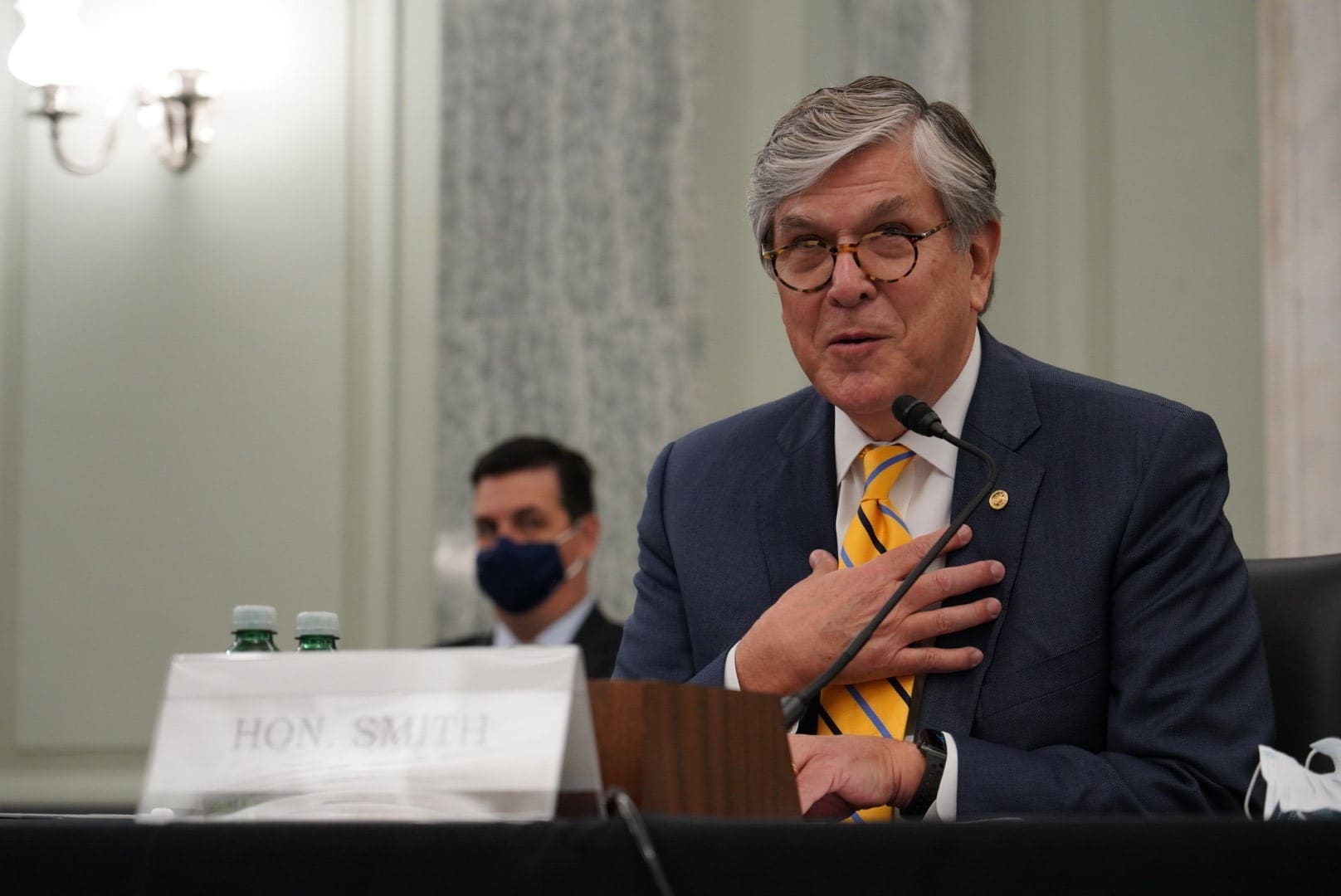
NAB President and CEO Gordon Smith testifying before the Senate Commerce Committee
National Association of Broadcasters (NAB) President and CEO Gordon Smith underscored the trust, accessibility and community presence of local pharmacies and pharmacists during his testimony on Thursday, April 15, before the Senate Commerce Committee at a hearing entitled “Shot of Truth: Communicating Trusted Vaccine Information.”
During his remarks, Smith described NAB’s partnership with the Reynolds Journalism Institute (RJI) on a nationwide research project to identify effective vaccine education messaging – including the most reliable and trustworthy information sources; challenges to vaccine acceptance; and individuals and groups reluctant to receive the COVID-19 vaccine.
Of critical importance, the research demonstrated that local news and local pharmacists are among some of the most trustworthy community messengers – particularly when it comes to encouraging vaccinations.
Smith emphasized this crucial point during the Congressional Hearing, saying:
“Our survey research also showed local news to be the most reliable and trustworthy information source … [and] our data demonstrates that the public values a trusted local source, especially the voices of local doctors, local nurses and local pharmacists.”
The research conducted by NAB and the Reynolds Journalism Institute has also served as an important resource in a larger COVID-19 vaccination initiative jointly run by NACDS and NAB to help build trust among all Americans in the overall COVID-19 vaccination effort.
Launched on Jan. 14, the collaboration between NACDS and NAB focuses especially on leveraging the unique community influence of local broadcasters and pharmacy spokespeople and taking transparent messaging about the COVID-19 vaccination process directly to the American people.
As part of the joint effort, NAB, NACDS and RJI made available an online toolkit to help local journalists craft COVID-19 vaccine education messages that best resonate with their audiences.
The toolkit currently includes NAB/RJI public opinion research; sample messaging; webinars and podcasts; a speakers bureau complete with national and local experts; public health resources; and more.